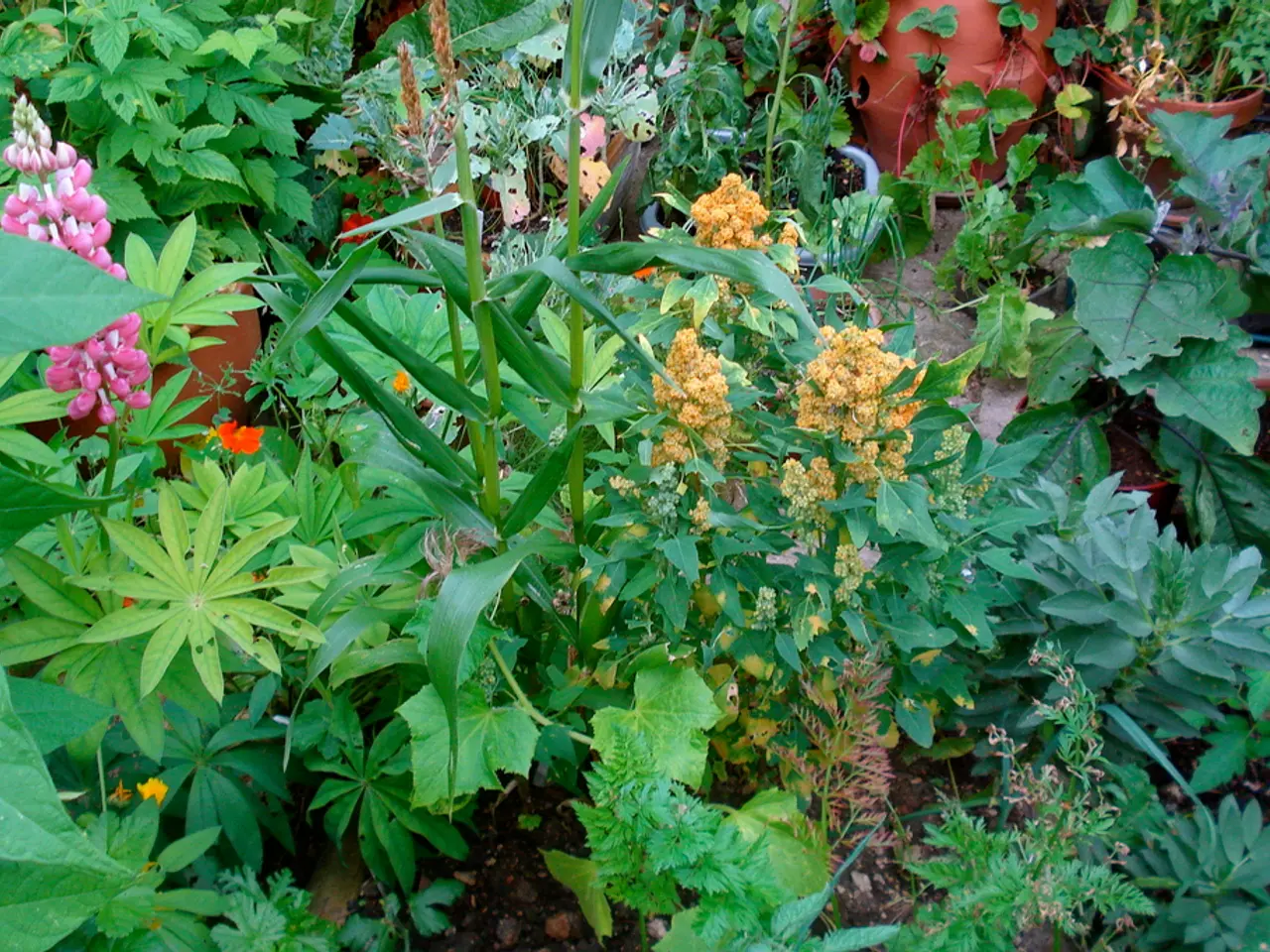Organic Lawn Care Techniques: Chemical-Free Gardening Solutions
In the quest to maintain a beautiful and thriving garden, the presence of weeds can often be frustrating. However, with a combination of physical removal, natural herbicides, and preventive barriers, it is possible to effectively manage and remove common garden weeds without the use of harmful chemicals.
- Manual Removal
Pull weeds by hand or use a weeding tool, especially when the soil is moist, to get roots out completely. This method is particularly effective for weeds such as dandelions, where a long, pointed trowel can be used to extract the tap root without breaking it.
- Use Vinegar
Apply vinegar (containing acetic acid) directly to weeds on a sunny, calm day to dehydrate them. Be careful to avoid desirable plants, as vinegar is non-selective.
- Mulching
Cover soil with a 7 cm layer of organic mulch (such as wood chips or straw) to block sunlight, preventing weed seeds from germinating. Mulch also retains moisture and improves soil quality.
- Salt Application
Sprinkle salt at the base of individual weeds to make the soil less hospitable, but use sparingly to avoid harming other plants.
- Edging and Physical Barriers
Create clean garden edges to prevent invasive weed spread and use landscape fabric under mulch to block sunlight while allowing water and air flow.
- Organic Oils
Spray young weeds with a mixture containing about 20% clove oil, an organic contact herbicide that kills only treated plants without residue.
- Newspaper or Cardboard Layering
Lay wet newspaper or cardboard over soil around plants, then cover with mulch to smother existing weeds and block new growth.
By combining these methods—manual pulling, natural sprays like vinegar or clove oil, physical barriers like mulch and landscape fabric, and garden edging—you can effectively control weeds sustainably and without harmful chemicals.
However, it is important to note that while salt and vinegar are natural, they can harm soil health and neighboring plants if overused. Precision and moderation are crucial.
For weeds with more extensive root systems, such as bindweed and horsetail (marestail), regular pulling or digging may be necessary over several weeks to weaken the plant. As a last resort, covering infested areas with old carpet or black polythene for at least two years can kill off remaining weed roots.
Weeding is essential, but care must be taken to avoid making the problem worse. Pulling weeds by hand or hoeing can leave roots intact, leading to vigorous regrowth. Therefore, it is important to loosen soil around roots and tease out as many as possible.
In addition to these methods, understanding the specific characteristics of common summer weeds such as nettles, dandelions, and thistles can help in their control. For example, cutting off flowers or seedheads of these weeds can prevent seeding around the garden.
Lastly, remember that some young plants spotted may be garden-worthy self-seeders. The newsletter offers advice and inspiration from favorite gardeners to help you navigate this balance between control and cultivation.
[1] RHS. (2021). Organic Weed Control. Retrieved from https://www.rhs.org.uk/advice/profile?pid=465 [2] Garden Myths. (2021). The Truth About Mulch. Retrieved from https://www.gardenmyths.com/2017/04/the-truth-about-mulch/ [3] RHS. (2021). Weed Control. Retrieved from https://www.rhs.org.uk/advice/profile?pid=213 [4] RHS. (2021). Clove Oil. Retrieved from https://www.rhs.org.uk/advice/profile?pid=10506
Adopting a sustainable approach to gardening, consider incorporating home-and-garden techniques like mulching (using wood chips or straw) and newspaper or cardboard layering to smother weeds and prevent their growth. Also, employing lifestyle practices such as manual removal of weeds, particularly with long-trowel extraction, can aid in managing common garden weeds.




